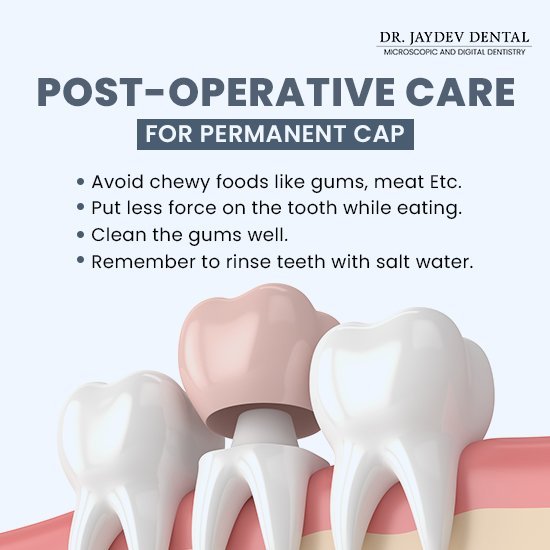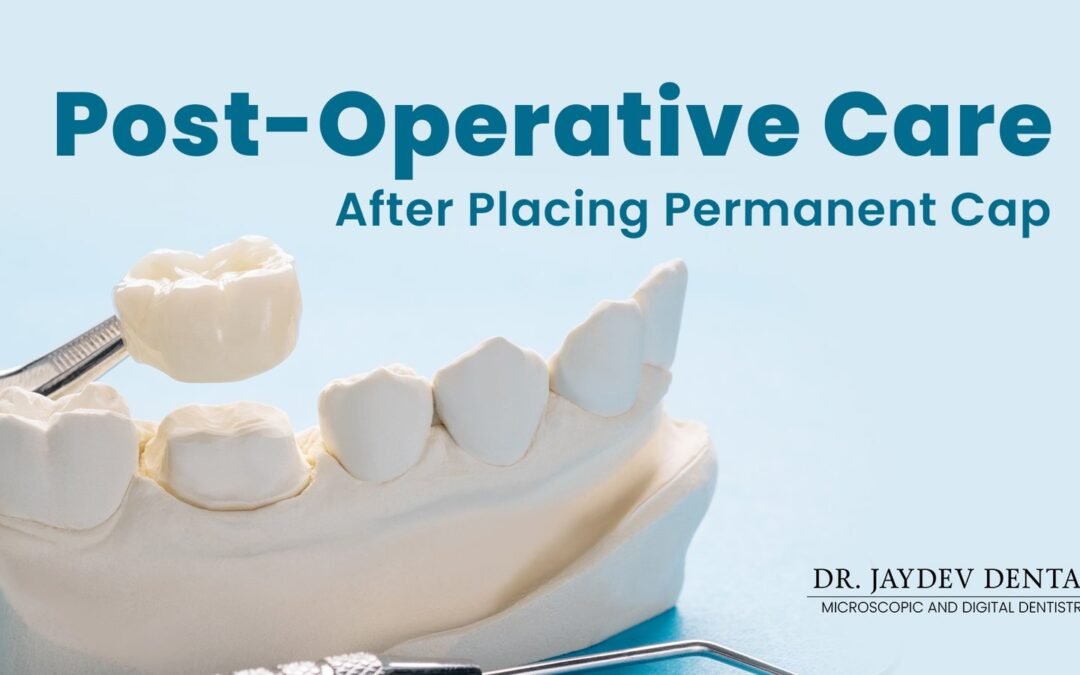Dental cap treatment is one of the most common procedures used to protect damaged, decayed, or root canal-treated teeth. These dental caps, also known as crowns, shield the tooth from further damage by acting as a protective barrier against harmful elements.
Dental caps are designed to fully cover the tooth. The procedure typically requires two appointments. During the first visit, a temporary cap is placed to protect the tooth, and on the final visit, a permanent cap is fitted. While the idea of dental crowns might feel intimidating to some, it doesn’t have to be!
At Dr. Jaydev Dental Clinic, we prioritize your comfort by providing clear and detailed explanations:
- What the procedure involves,
- Why it is necessary, and
- How the process will be carried out.
By addressing your concerns and providing transparent information, we aim to ease any anxiety you may have about dental cap treatment.
This blog will cover everything you need to know about permanent dental caps, from their purpose to post-operative care.
What is a Temporary & Permanent Dental Cap?
Temporary Dental Cap
This is usually placed during the initial procedure. To begin with the dental cap, your tooth needs to be shaped right to make it fit. Your tooth will be numbed in this procedure and the process takes about an hour and not more than 2 hours. Once the tooth is prepped, our dentists either take the impression of the tooth or 3-D model the tooth to structure the permanent cap. After the impressions are captured, it takes around 2 to 3 weeks for you to get your permanent tooth.Permanent Dental Cap
This is the final procedure where your permanent dental cap made from either Gold, Porcelain, Zirconia & a ZMAX Smile, or Emax is placed. First, the temporary cap is taken off and the tooth is cleaned. Next, the permanent cap is tried on the tooth to check its alignment and fixings. The dentist ensures the proper fixing of the permanent cap and its alignment with other teeth while chewing. Then necessary, adjustments will be made if required. Finally, the dental cap is cemented to make it permanently fixed.Post-operative care

Post-operative care is nothing but the measures to follow after each procedure associated with oral or dental health. Right healing at the right time makes the effect last longer. As dental caps serve many purposes right from bringing aesthetics to fixing injured teeth, taking proper care of them is a priority to consider.
Why is it necessary?
Every dentist will specify the post-operative measures to follow by every individual concerning their levels of treatment. Below are the well-voiced reasons to make a perfect post-operative routine after the dental cap placement.
Prevent discomfort or infection –
Use dentist-prescribed medicines or anti-inflammatories to relieve the pain. For some, antibiotics were also directed for use.
Improves success rate of the procedures –
For any treatment to be successful or long-lasting, proper personal care and hygiene are to be maintained by the individual. Though your dentist provided the most advanced treatment, it is all your concern to successfully heal.
Signs that you are out of recovery track post-operation
Sensitivity is not normal
For a few days after cementation, you will be sensitive to cold and heat. This sensitivity is to be tolerated only for a few weeks, say 2. Usually, sensitivity at this moment will be due to the teeth recovering after all the cavities are removed. It may also be due to the chemicals used during the procedures. But, if you notice this sensitivity crossing the limit of tolerance, consult your dentist immediately.
Improper fit of your new restoration
You know how your jaw structure is and how it moves to your chews. After the dental cap, there will be no change in this once the cap is well cemented and stuck to. But, if you notice any position change while your jaw is at rest or while chewing the food, let your dentist know and readjust it.
Factors that Determine Dental Crown Longevity
- Do the cap cemented on the front or rear teeth.
- The size of the cap whether partial or full.
- Quality of cap manufacturing material and installation.
- Condition of the tooth under the cap.
- Strength and frequency of oral hygiene routine.
- Harmful habits like chewing ice, nails, etc.
- Periodontal health.
Post-Operative care for permanent Cap:
As we made it clear that the final stage of the dental cap is to cement it to well adhere to the tooth. Allowing it to settle and stick hard is the key to preventing further tilts in it. To make this easier, do not eat or drink anything for about 30 minutes.
Here, the first thing you may face is pressure sense on other teeth which will vanish in a couple of days after the dental cap makes its place to fit.
Some of the simple aftercare procedures are;
- Avoid chewy foods like gums, meat, and other hard-to-chew foods.
- Put less force on the tooth while eating. Choose soft foods like fruit or well-cooked foods.
- Clean the gums well to avoid internal infections.
- Remember to rinse teeth with salt water to fight sensitivity to heat or cold
Along with these, follow the below procedures to retain the teeth’ strength and cap placement.
Brush around Crowns
The crown is just like a cover over your natural teeth that protects teeth. As it is connected to the natural tooth, proper cleaning is required to avoid further cavities. Tooth decay has good scope to form at the crown margin where it meets the natural tooth and gums. So, brush the tooth to clean the gum line well. Again, do not brush hard, be gentle and proper.
Floss regularly
Flossing helps in removing the stacked food items between the natural teeth and dental cap. This will prevent the cavity from being formed. Use a water flosser to effectively clean the accumulated particles. Brush and floss your crown daily, just as you would your natural teeth.
Dr. Jaydev dental clinic Advantage
At Dr. Jaydev’s dental clinic, we provide individualized treatment with all the necessary equipment and advanced procedures. All our dentists and orthodontists have accredited practitioners with vast experience. They ensure utmost care before, during, and after the procedures.
Quick book your appointment or call us now to get your doubts cleared.

